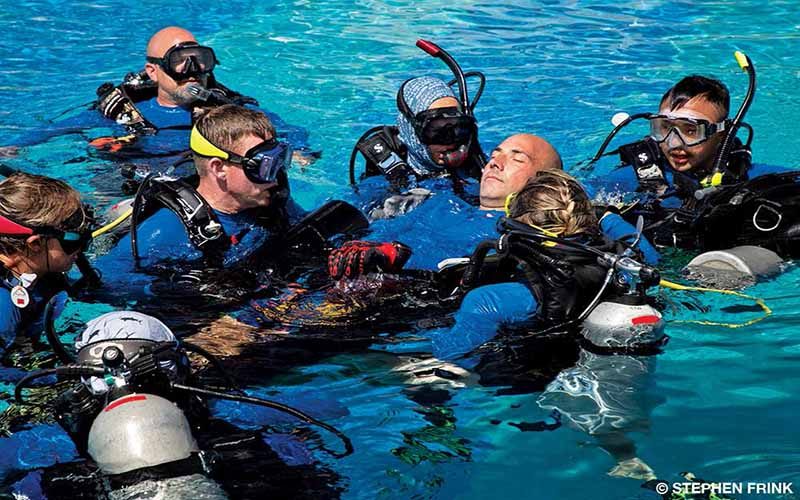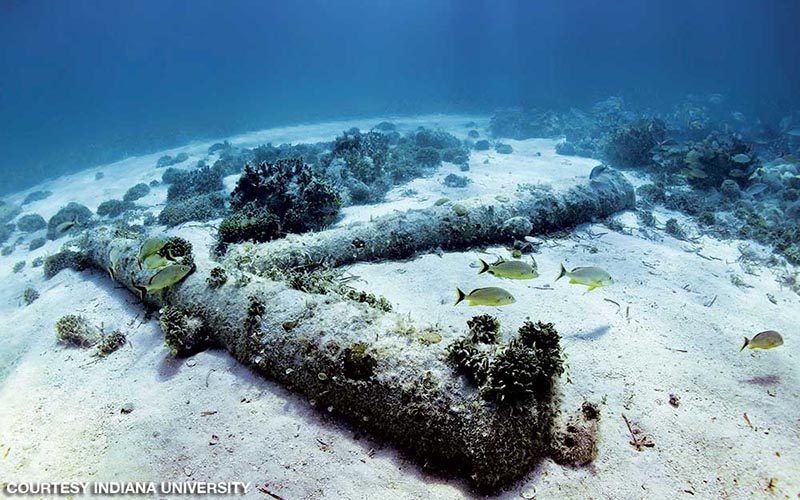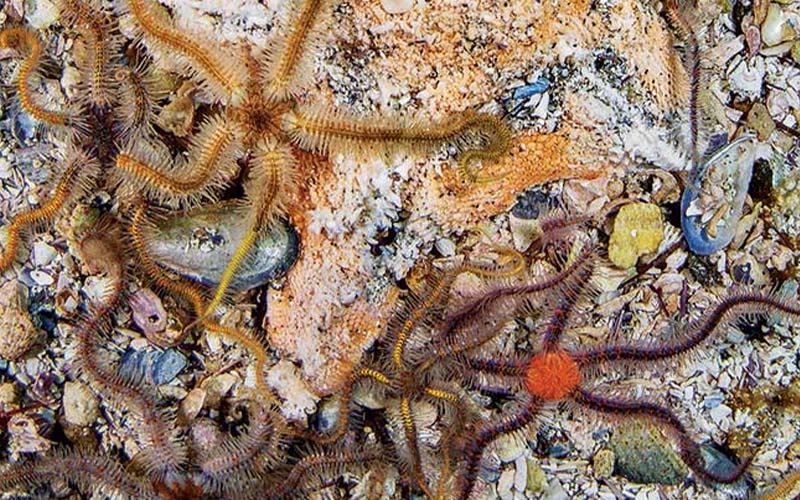Exceptional Readiness
A first-of-its-kind course is designed to teach military medical and graduate nursing students underwater emergency response. It ensures that medical staff are prepared to treat military service members.

A first-of-its-kind course is designed to teach military medical and graduate nursing students underwater emergency response. It ensures that medical staff are prepared to treat military service members.

Research has proven the importance of shipwrecks in marine environments and two leading researchers are continuing to preach that message in the Florida Keys.

Starfish populations are dramatically decreasing up and d own the West Coast as a result of a mysterious disease. There were massive die-offs that sounded alarms.

Dr. Sally Bauer is an accomplished diver and marine biologist who is also incredibly passionate about diving and marine life.

There are two mystery shipwrecks lying offshore in Canadas’ Prince Edward County. The wreck and its discovery are a mystery.

Tattoo artist Deano Cook is also an accomplished painter and underwater photographer. The DAN member discusses how he got into scuba diving and what he enjoys about the sport.

Papahānaumokuākea Marine National Monument (PMNM) in the Northwestern Hawaiian Islands is the largest marine conservation area in the United States and one of the largest in the world. Studying the biodiversity of the Hawaiian archipelago using scuba has given scientists a unique opportunity to monitor the physiological impacts of deep dives and thus expand our knowledge of diving science, particularly decompression risk.

An ophthalmologist set up a team to perform eye surgeries in Grenada as a way to give back to the local community. More than 100 children received eye exams.

During a short, 25-minute dive professional divers were able to extensively photograph an aircraft that sank in 1944.

Coral restoration projects are currently underway in the Florida Keys to help rebuild these reefs from the ground up. Coral nurseries off the coast of Florida, grow and later transfer corals.
